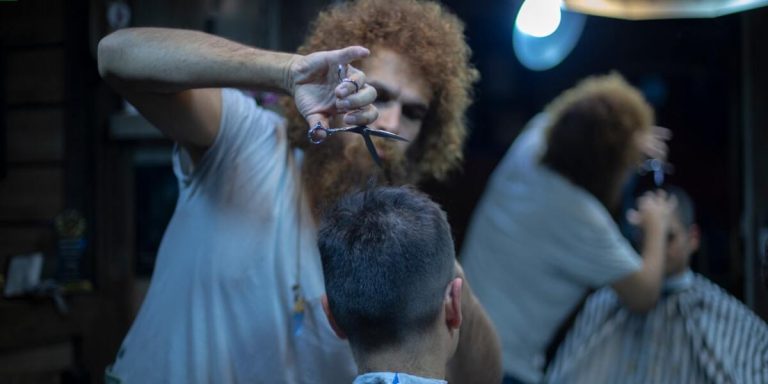Vitamin Deficiency Causing Hair Loss: Unraveling the Underlying Connection
A startling connection often overlooked in discussions about hair loss is how it can be triggered by a lack of essential nutrients. In fact, vitamin deficiency causing hair loss is more conventional than we realize and requires adequate attention for comprehensive understanding. This form of alopecia or baldness isn’t limited to just one gender and traverses across different age groups.
In this article, we delve deeper into the world of micronutrients which play an indispensable role in maintaining our crowning glory. Discerning the link between dietary insufficiencies specific vitamins and minerals have on your follicles may potentially hold answers to combatting unwarranted shedding or thinning tresses.
Did you know?
Did you know that a deficiency in Vitamin D, often called the ‘sunshine vitamin’, can actually make your hair fall out? Multiple studies have pinpointed this connection, indicating that lower levels of Vitamin D are found in people experiencing hair loss.
Understanding the Link Between Vitamin Deficiency and Hair Loss
Vitamin deficiency plays a significant role in hair loss, a factor we cannot ignore in 2023. Our bodies need specific vitamins and minerals for functions such as boosting our immune system and promoting cell growth.
These essential roles include nourishing the follicles on your scalp, where new hair strands grow. A lack of necessary vitamins and nutrients in your diet or through supplements can cause excessive shedding or thinning of your hair.
The concept of ‘bioavailability’ is an important point here. Consuming vitamin-rich foods isn’t enough; our bodies must also absorb them effectively. Unhealthy diets high in processed foods or certain medical conditions like gastrointestinal disorders can lead to inadequate absorption.
This brings us back full circle: if crucial nutrients cannot reach those thirsty hair follicles for any reason, expect potential shriveling up!
Vitamin A, B-vitamins such as biotin (B7), folate (B9), and B12 frequently receive attention for their roles in preventing unwanted hair fall-outs. These micronutrients serve essential functions as co-enzymes that support DNA synthesis during rapid cell division occurring at the root beneath the scalp surface. Each lock of hair grows from this point, curling over its lifetime until it falls out.
Identifying Key Vitamins Essential for Hair Health
Firstly, let’s talk about Vitamin A. It is vital for cell growth which includes our delicate strands as well! Without it, your locks might seem dull or even start thinning out noticeably – an early sign of ‘vitamin deficiency causing hair loss’.
However, moderation is crucial because excessive amounts can also instigate problems.
Next on this list would be the B-vitamins with special mention going to Biotin or B7- known for its direct impact on healthful follicles’ creation. Reports have suggested people facing alopecia generally exhibit low levels of biotin resulting in stunted growth and eventual fall outs.
Then comes Vitamin C; other than boosting immunity powers it aids collagen production too – a protein forming integral part of your mane structure besides safeguarding against oxidative stress caused by free radicals saving you from premature greying & thinning!
Vitamin D also plays its role effectively through creating new pores where novice hairs sprout up while vitamin E enhances blood circulation at scalp ensuring optimal nourishment reaching each strand root thus preventing untimely losses attributed majorly due to malnutritioned roots.
Addressing Nutritional Gaps to Prevent Follicular Damage
Addressing nutritional gaps is an effective strategy to prevent follicular damage, particularly for those suffering from the impacts of vitamin deficiency causing hair loss. In our modern world where rushed meals and unhealthy diets are common, many people often overlook their nutritional needs leading them towards health issues like weak hair roots and significant hair fall.
Firstly, incorporate Vitamin A into your diet as it helps in cell growth – this includes your hair which is one of the fastest-growing tissues in the human body! It also aids sebaceous glands to produce adequate oil called sebum that moisturizes scalp preventing dryness and breakage.
Hormonal Imbalances and Other Factors Contributing to Hair Thinning
As we delve deeper into the causes of hair loss, it’s noteworthy to address how hormonal imbalances could play a significant role. One major hormone that greatly impacts our scalp health is Dihydrotestosterone (DHT). An excess of this androgen can lead to miniaturization of hair follicles, causing the strands to weaken over time, thus contributing heavily to balding or thinning.
This issue commonly arises during menopause in women due its influence on estrogen levels as well.
But hormones are not the only culprit here; other factors like vitamin deficiency have also been linked with patterns of hair thinning. Essential nutrients such as Iron, Vitamin B12 and Vitamin D serve pivotal roles in maintaining overall wellness including sustaining healthy locks. Inadequate intake may compromise their beneficial effects leading up into slower growth rate or worse – speeding up your journey towards unwanted shedding.
Both these scenarios primarily underline one crucial fact – Your body’s internal conditions significantly mirror onto your physical attributes which includes your tresses too! So next time you notice any changes starting from above, remember it might be an insight about what’s stirring within.
Exploring How Thyroid Issues Can Lead to Hair Loss
A dysfunctional thyroid gland can lead to several health problems including weight gain or loss, mood swings and importantly for our discussion – hair thinning or even complete baldness in extreme cases.
Your thyroid is like your body’s control center; when it produces too much (hyperthyroidism) or too little (hypothyroidism) hormones, various bodily functions get thrown off balance. One symptom you may notice if your hormone levels are not balanced is changes in your hair growth cycle which could result in severe shedding or thinning of the scalp hairs.
An underactive thyroid can lead to insufficient nutrients delivered through blood circulation, potentially weakening follicles and slowing the rate of new healthy hair growth. This happens because the hair isn’t getting enough nourishment from essential vitamins needed for normal development, leading to a possible reduction over time.
The Role of Stress and Cortisol in Disrupting Hair Growth Cycles
Life in the 21st century often comes with high levels of stress that impact various aspects of our health, including hair growth. In fact, research indicates a strong correlation between emotional or physiological stress and disruption in hair growth cycles.
In order to understand this link more clearly, we need to delve into an important hormone – cortisol. Our bodies produce Cortisol as part of the ‘fight-or-flight’ response mechanism when faced with stressful situations. However, chronically elevated levels can negatively affect many body functions including digestion, immunity system responses and even follicle function causing hair loss.
The human scalp has around 100k-150k hairs which are perennially cycling through three stages: active-growing phase (anagen), brief transitional stage (catagen) and resting or shedding phase (telogen). When a person is under constant high-stress levels their body produces excess Cortisol leading towards too many hairs entering into premature telogen stage at once resulting in dramatic thinning known as Telogen Effluvium.
Medical Conditions That May Result in Increased Hair Shedding
Knowing the cause of one’s hair loss is an integral part of finding its cure. One common but often overlooked reason behind excessive hair shedding is certain medical conditions, particularly those related to vitamin deficiency. Vitamins are essential for our body’s overall health and wellbeing, including maintaining a healthy scalp and fostering robust hair growth.
One such vitamin whose deficit can be linked to unanticipated levels in hair fall is Biotin or Vitamin B7. This water-soluble vitamin aids keratin production in your body- a protein that forms the basic structure component of your hairs. A biotin-deficient diet may hence lead to brittle hairs prone to breakage, causing significant thinning over time.
On similar lines lies Vitamin D’s role which ensures good circulation around follicles, ensuring their steady growth cycle isn’t hindered by any means – interruption identified as another key trigger behind sudden bouts of increased shedding incidents across individuals globally.
Examining Autoimmune Disorders Affecting Scalp Health
Autoimmune disorders are often overlooked or misdiagnosed in many cases, as their symptoms can be quite subtle and easily mistaken for other health conditions. However, these complex diseases do pack a punch when it comes to affecting overall health – including that of the scalp.
One such autoimmune disorder leading to hair loss is Alopecia Areata. This condition triggers an attack on your own hair follicles by your immune system resulting in sudden hair fall mostly from the scalp but also from any part of the body where there’s potential growth.
The second culprit under discussion here is Lupus – another form of autoimmune disease attacking tissue and organs besides majorly affecting skin and joints. Hair thinning or even complete baldness could occur if one suffers from Lupus due to inflammation at root level damaging hair follicles beyond repair.
Often forgotten yet pretty common, vitamin deficiency causing hair loss takes precedence too among medical reasons disrupting normalcy of scalp health. Deficiency particularly pertaining to Vitamin B7 (Biotin) might lead you into dealing with light-headed dry spells culminating gradually into substantial shedding off-the-roots sooner than later due its essential role in healthy cell replication process integral for maintaining effective growth cycle patterns.
Uncovering Hidden Illnesses: Anemia’s Impact on Follicle Function
If you’ve noticed a sudden increase in hair shedding, it may not be due to the common culprits like genetic disposition or aging. In many cases, this unexpected thinning could stem from an underlying health issue such as Anemia.
Anemia occurs when your body lacks sufficient healthy red blood cells to carry oxygen effectively. This doesn’t only result in fatigue and weakness but also impacts various bodily functions including what concerns us here – hair growth.
Conclusion
In the end, it’s essential to recognize that our bodies work in unison. A missing cog like a vitamin deficiency causing hair loss can disrupt this harmony and manifest through various signs–including your locks losing their lustre or volume. But remember, knowledge is power; by understanding the underlying causes of hair loss linked with nutrient deficiencies, one paves the way towards targeted solutions.
Don’t let those strands go without a fight! Delve deeper into other potential ‘Hair Loss Causes’ around our website to equip yourself better for this battle against baldness. After all, every strand counts when maintaining that beautiful mane!







